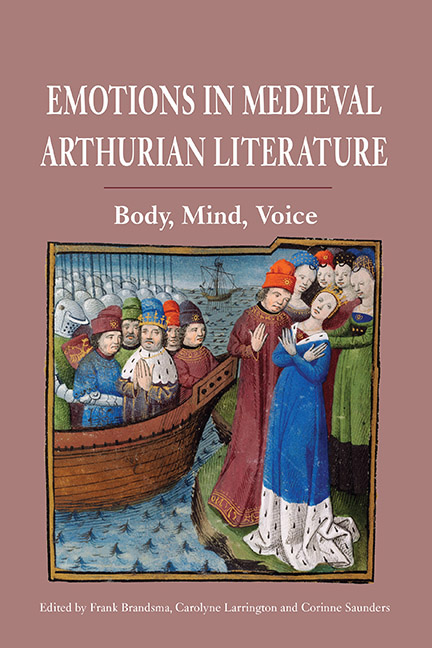1 - Being-in-the-Arthurian-World: Emotion, Affect and Magic in the Prose Lancelot, Sartre and Jay
Published online by Cambridge University Press: 21 May 2021
Summary
Jean-Paul Sartre's 1939 Esquisse d’une théorie des émotions (translated as Sketch for a Theory of the Emotions) emerges from his engagement with Edmund Husserl's phenomenology, which studies consciousness from the point of view of the first-person subject interrelating with objects. The Sketch outlines what a phenomenological theory of the emotions might look like. I quote Sartre's conclusions at length, as they will structure my discussion throughout:
Thus consciousness can ‘be-in-the-world’ in two different ways. The world may appear before it as an organized complex of utilizable things, such that, if one wants to produce a predetermined effect, one must act upon the determinate elements of that complex. As one does so, each ‘utensil’ refers one to other utensils and to the totality of utensils; there is no absolute action, no radical change that one can introduce immediately into this world. We have to modify one particular utensil, and this by means of another which refers in its turn to yet another, and so on to infinity. But the world may also confront us as one non-utilizable whole; that is, as only modifiable without intermediation and by great masses. In that case, the categories of the world act immediately upon the consciousness, they are present to it at no distance (for example, the face that frightens us through the window acts upon us without any means; there is no need for the window to open, for a man to leap into the room or to walk across the floor). And, conversely, the consciousness tries to combat these dangers or to modify these objects at no distance and without means, by some absolute, massive modification of the world. This aspect of the world is an entirely coherent one; this is the magical world. Emotion may be called a sudden fall of consciousness into magic; or, if you will, emotion arises when the world of the utilizable vanishes abruptly and the world of magic appears in its place.
(Sketch, pp. 90–91)According to Sartre, when I am being emotional, I am living in a world that is immediate – without instruments, distance or deferral. These latter characterize the utilizable, instrumental world. Emotion is therefore a species of magical thinking.
- Type
- Chapter
- Information
- Emotions in Medieval Arthurian LiteratureBody, Mind, Voice, pp. 13 - 30Publisher: Boydell & BrewerPrint publication year: 2015



